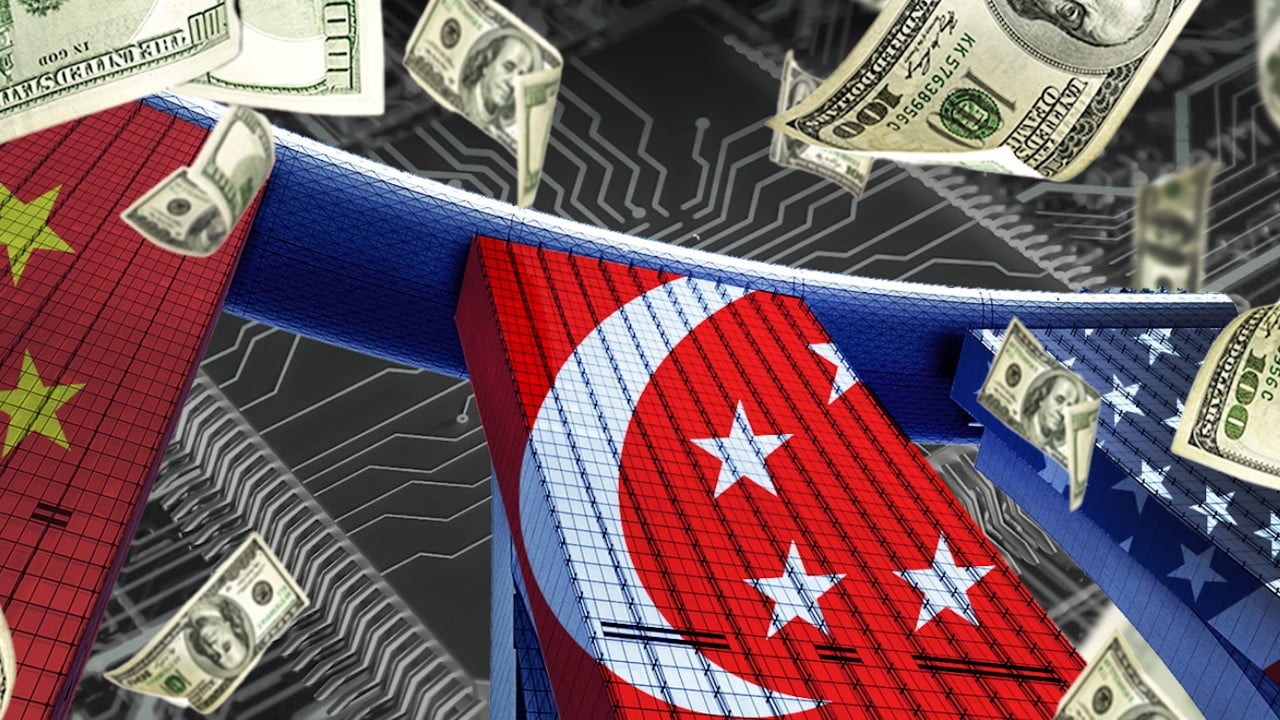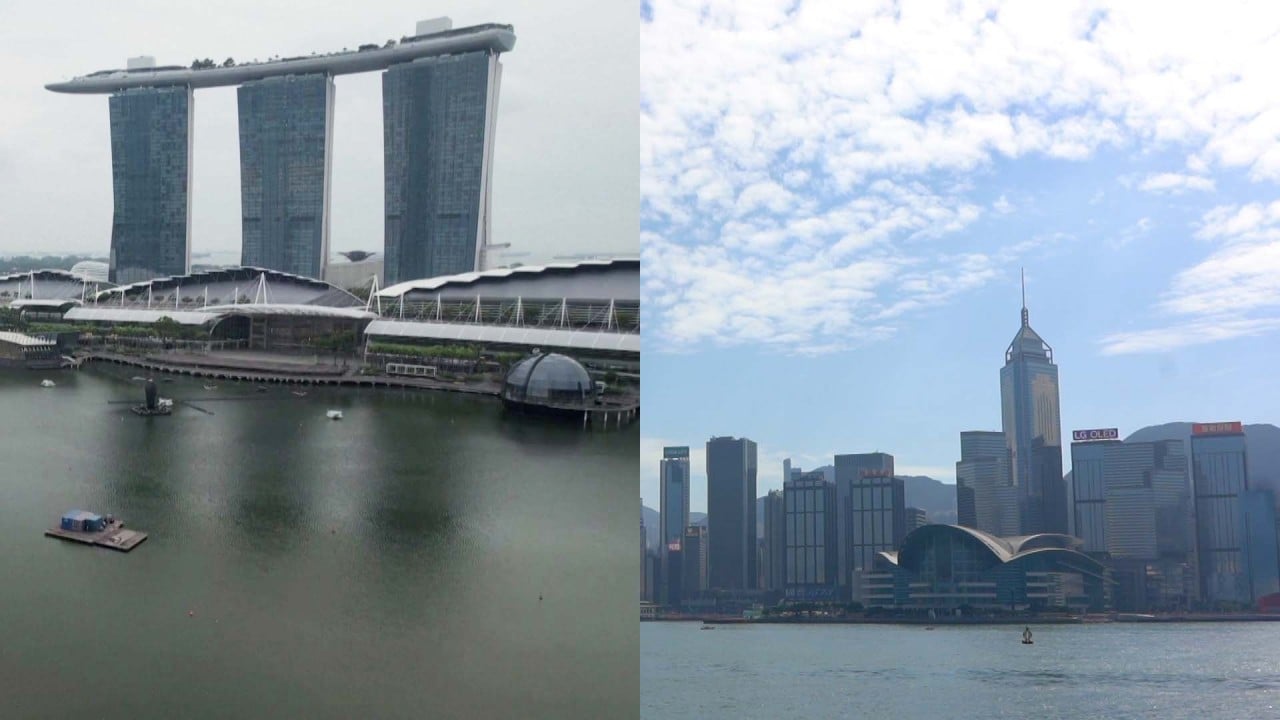It can be hard to stay hidden when you are a man worth US$10.5 billion and living in an island state of 734 sq km, but the founder of fast fashion company Shein has managed to do just that.
So far no one has been able to produce a single fresh photo of Xu Yangtian, who also goes by Chris or Sky Xu, out and about or even in meetings or talking to investors in Singapore. Employees, urban legend has it, have never even seen him.
Such is the iron dome of secrecy he operates under. But he is not the only Chinese entrepreneur to adopt such a studiously low profile. Over the past few years, more of them have relocated to Singapore, using the city state for either their headquarters or research and development divisions, a trend triggered by China’s deteriorating relations with the United States and a regulatory storm against tech firms back home.
Even as their bosses seek the shadows, these Chinese businesses often find themselves in the limelight, thanks to the sudden fame – or notoriety of one of them – or changes in policy directions that have an impact on their fate.
With Hong Kong now rolling out the red carpet for more Chinese firms to domicile in the financial hub, a seemingly more natural fit given how China is like its hinterland, and as Singapore toughens its laws on the inflow of wealth, the companies are once again attracting renewed interest and questions.

Shein is the latest to attract the spotlight with news of its plan to seek a London listing. The likely move is already mired in challenges due to its Chinese origins, as calls have mounted for it to be investigated for allegedly using “slave” labour and a lack of transparency about its operations in China.
The company, which has bested the likes of rivals such as H&M and Zara’s owner Intidex, has reportedly never published photos of Xu nor has he made any public speeches throughout his career.
The 40-year-old, who is among China’s richest men, became a permanent resident in Singapore and the firm went on a mass hiring spree, according to a February 2022 report by Reuters, all in an effort to bypass stricter Chinese rules for offshore IPOs.
His company was just one of the estimated 500 Chinese that have quietly redomiciled or registered in Singapore in 2022, according to a report by the Financial Times.
Data from analytics platform Handshakes also revealed that of the around 63,800 new corporate entities formed in Singapore in 2022, 29 per cent had been foreign-owned. This is up from the 23.7 per cent in 2021 – when 64,912 entities were formed – and 25.1 per cent in 2020 – with 63,249 entities created.
Singapore has emerged as the obvious “initial entry point” for many Chinese entrepreneurs looking to expand in Southeast Asia, which is home to close to 700 million and collectively making up the fifth-largest economy in the world.
In 2021, Singapore attracted a record S$448 billion in new money, a 15.8 per cent jump from the previous year. Assets managed by firms in the city state also rose by 16 per cent to S$5.4 trillion, most of which coming from foreign investors.
However, the amount of new money dipped to S$435 billion the following year, while assets managed by firms dropped by 10 per cent to S$4.9 trillion.
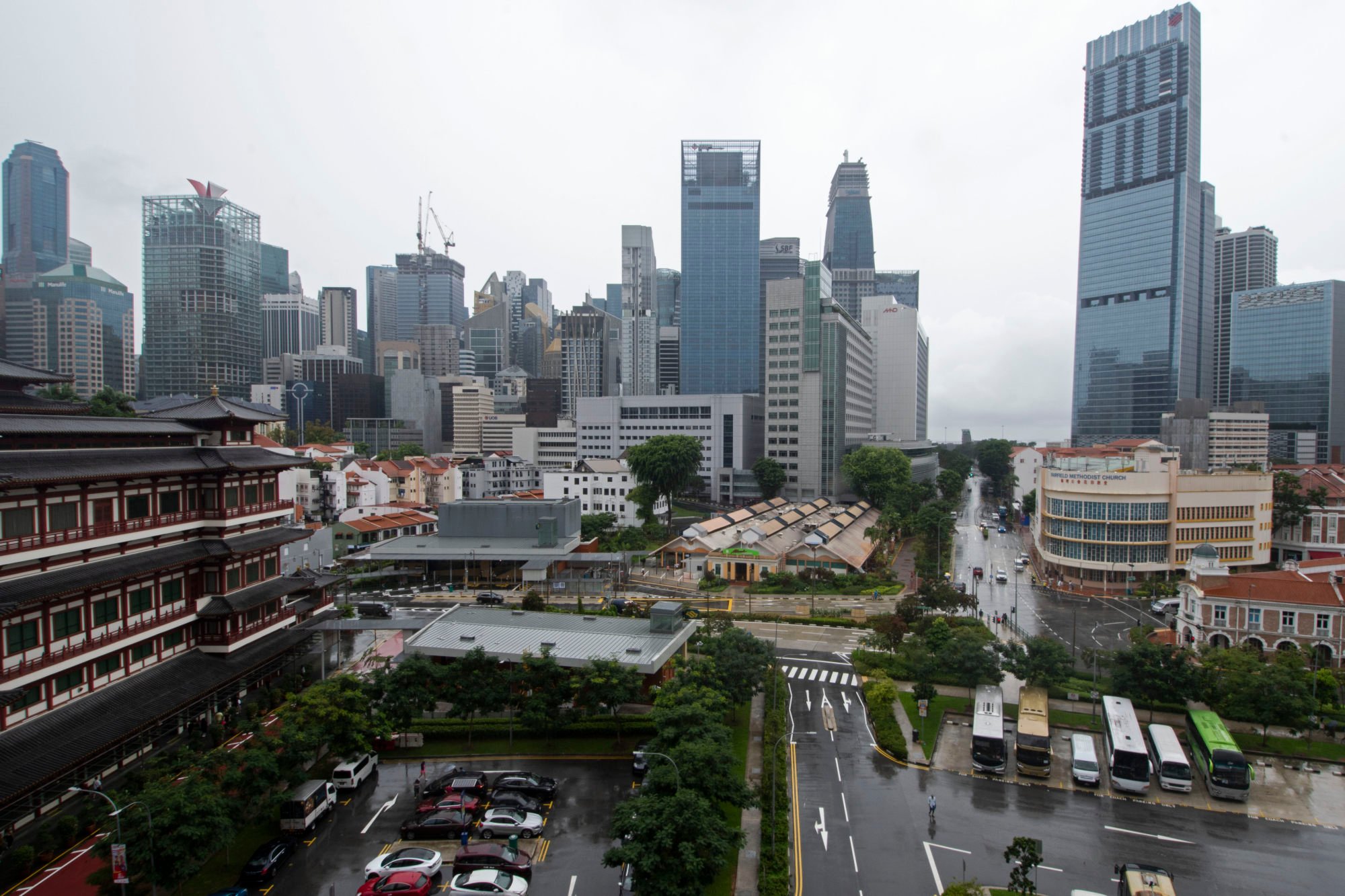
After the pandemic, many multinationals saw the need to diversify their supply chains and businesses, said business professor Lawrence Loh, and the Singapore government saw that gap and rolled out the red carpet with incentives.
“There was a confluence of factors: such as Covid, where many businesses realised that they shouldn’t be putting all their eggs in one basket especially when it came to supply chains and consumer demand disruption,” he said.
“But the elephant in the room is US-China rivalry which forced businesses to consider coming to a non-aligned country, which can neutralise their exposure.”
While there have been suggestions that Singapore’s wealth boom may be hitting its ceiling following a recent S$3 billion (US$2.2 billion) money-laundering scandal, experts who spoke to This Week in Asia say that Singapore’s status as the preferred hub for regional offices is here to stay.
“Singapore’s strategic location in Southeast Asia, one of the world’s fastest-growing regions, is a significant factor. Many Chinese entrepreneurs are eager to capitalise on the business opportunities in the region, and Singapore often serves as their initial entry point,” said Yanbo Wang, an associate professor of strategy and innovation at the University of Hong Kong.
Beyond its strategic location, Singapore’s open economic policies and business-friendly environment were also some of the big draws for Chinese companies, said Huang Feng, founder of Play for Dream Technology, a Shanghai-based spatial computing company.
Huang set up the company’s regional headquarters in Singapore for a host of reasons. “We see Singapore as a welcoming and leading business hub in Asia to foreign businesses, with its transparent and stringent legal and regulatory system, a mature market environment and a robust financial system, makes it a business-friendly environment for foreign businesses to operate from here,” he said.
While Singapore has long been the preferred destination for these Chinese firms, starting out as early as the 2000s following China’s adoption of a “going out” policy to encourage overseas investment, Zhang Liang, a partner at Forvis Mazars, said the trend had accelerated due to fraying US-China relations and trade sanctions.
Most recently, Chinese artificial intelligence companies are leading the newest wave of Chinese firms moving to Singapore, following American restrictions on the mainland’s access to chips and other hi-tech equipment and the dearth of venture capital.
Meanwhile, others are moving over to the republic in an effort to distance themselves from their Chinese roots, as scrutiny against firms from the mainland mounts. This process has become widely known as “Singapore-washing”.
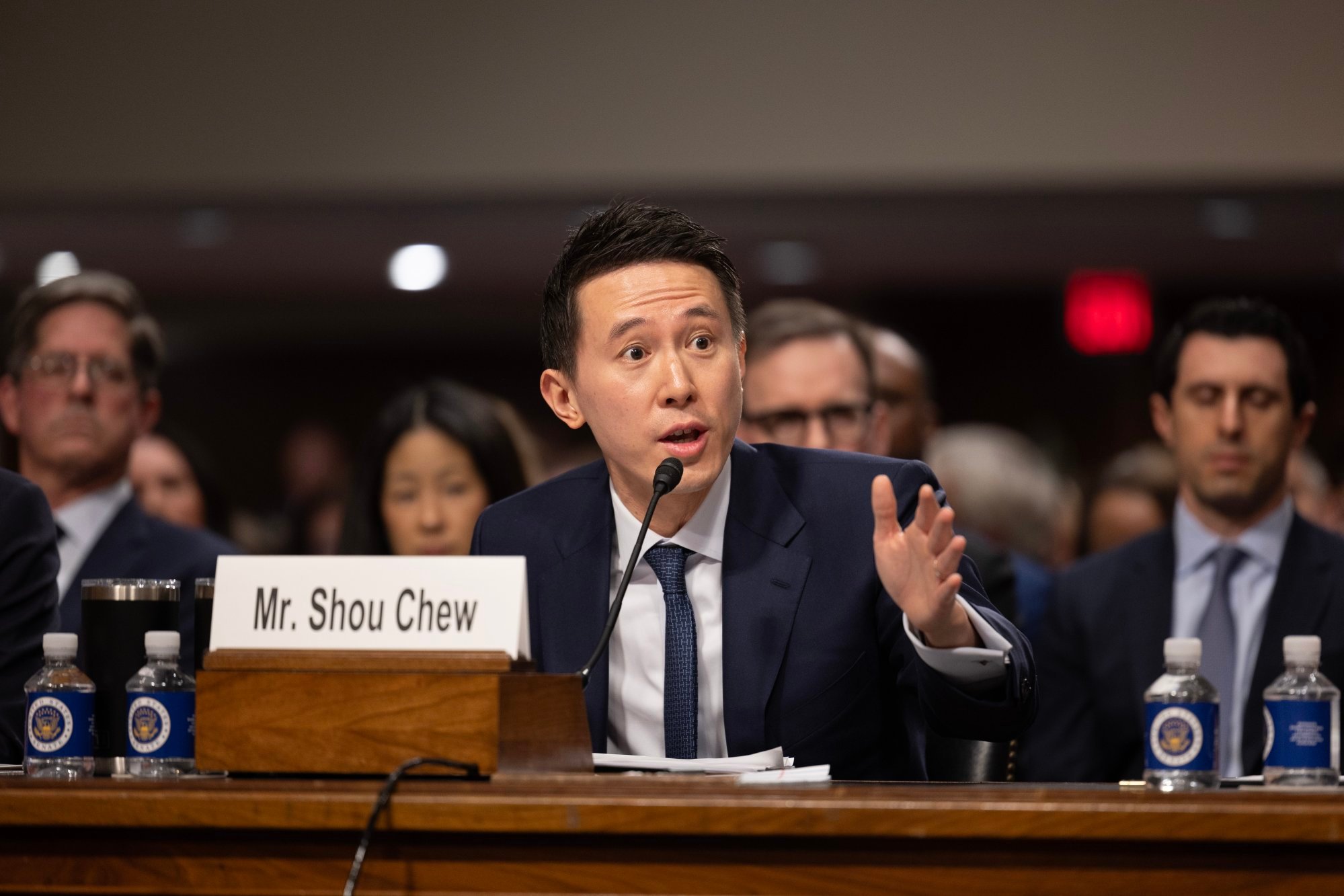
The example that is most often cited as an example of this phenomenon is social media app TikTok, which announced plans to move its global headquarters to the city state in 2020, and appointed Singaporean Chew Shou Zi as its chief executive officer.
Despite its efforts, TikTok’s campaign to tamp down concerns from American lawmakers that it poses a national security threat because of its Chinese roots appears to have failed.
“TikTok is led by its own global CEO, Shou Zi Chew, a Singaporean based in Singapore,” the social media app wrote in a 2022 letter.
Nevertheless, Chew’s nationality became the subject of worldwide attention after he was grilled at a US Senate Judiciary Committee hearing in January this year, where he had been questioned about his affiliation with the Chinese government.
“Senator, I’m Singaporean, no,” said a visibly frustrated Chew, in response to a question on whether he was a member of China’s Communist Party.
The TikTok example has shown the limits of “Singapore-washing”, Wang points out, though suggesting that many are continuing to do so out of necessity.
“As tensions between China and the US escalate, many Chinese firms are experiencing difficulties conducting business in Europe and North America simply because they are Chinese. By moving their headquarters to Singapore, these firms are attempting to rebrand themselves as ‘Singaporean’ rather than ‘Chinese’,” he said.
But companies must go beyond trying to conceal their roots, he added, and should subject themselves to “stringent and credible regulations” to gain the trust of the international community.
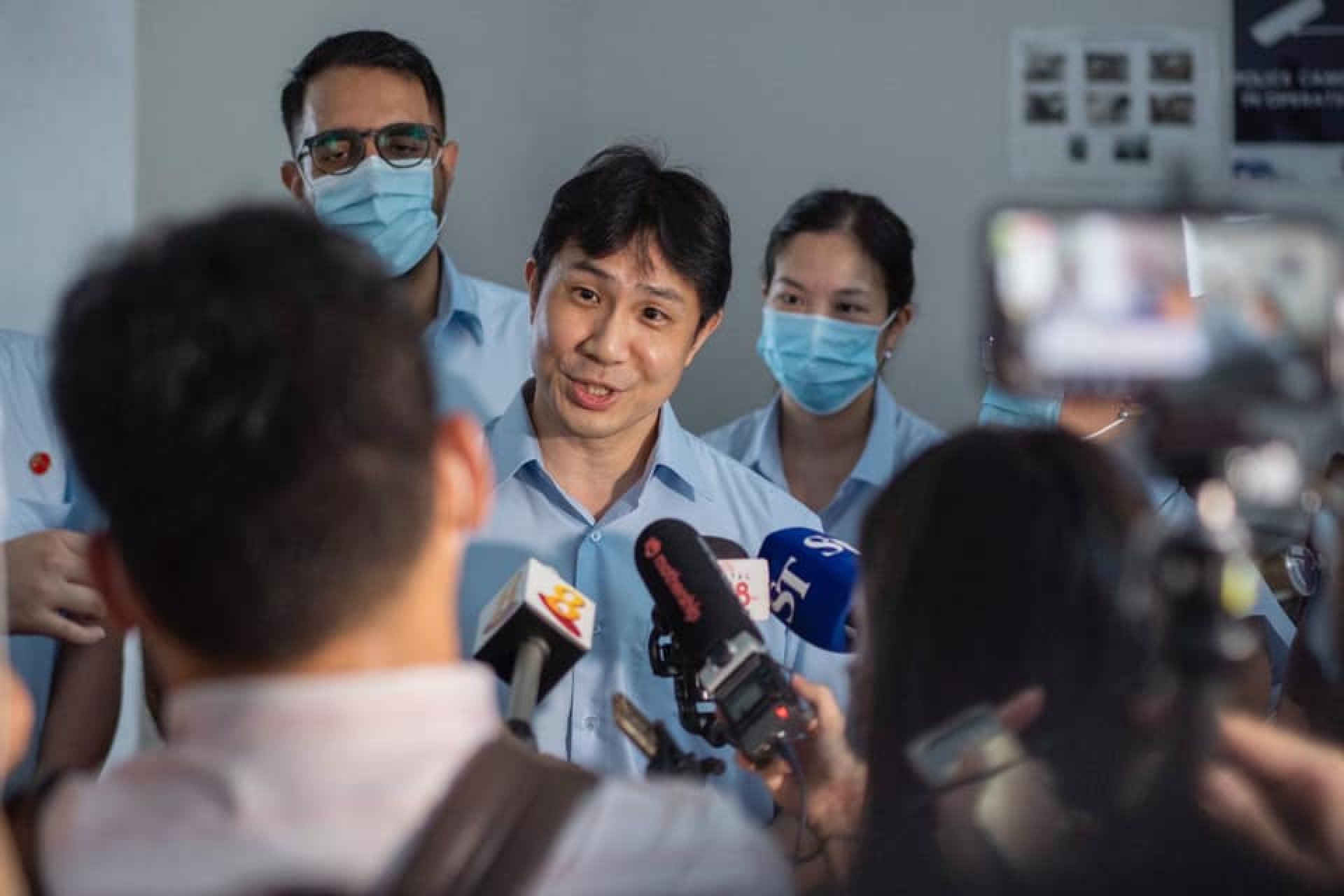
During a parliamentary sitting this month, opposition politician Jamus Lim, of the Workers’ Party, suggested that Singapore’s business-friendly rules may be mistaken as being lax, and may undermine the reputation the city state has worked hard to build.
“We should also not allow the world to think that an easy business environment also means a permissive one. Some have even suggested that ‘Singapore-washing’ – the process where foreign actors take advantage of our simple registration processes and global reputation for incorruptibility to incorporate fronts for dubious business activities – is some form of a quid pro quo for investing in our city state,” he said.
“Such a mindset will undermine our hard-won brand name, and eventually come back to bite us.”
Singapore push and pull
Beyond the Chinese, many other European and American firms are also using Singapore as a starting point to enter Chinese and Southeast Asian markets, such as FedEx, Microsoft and Rolls-Royce, among others.
Singapore was home to regional headquarters for 4,200 multinational firms in 2023, outsizing the over 1,300 in Hong Kong, which many considers its main rival in the region, according to a report released by Bloomberg Intelligence earlier in February.
“Hong Kong has lost the race to be international business’ preferred choice for Asia headquarters, as more global and even Chinese companies choose Singapore because of its better relations with the West, broader talent pool, diversified economy, and tax incentives,” the report stated.
This is also due to Singapore’s targeted incentives for foreign companies looking to set up regional hubs in the city state, which can cut its 17 per cent tax rate to 13.5 per cent or less for some activities. This is lower than Hong Kong’s standard corporate tax rate of 16.5 per cent.
Despite reports of some Chinese entrepreneurs moving back to mainland China or Hong Kong, it is unlikely that these companies will be uprooting themselves from Singapore in the near future, say experts.
Although business may be picking up in Hong Kong and the days of strict pandemic-related restrictions are long over, it does not mean there will be a rush of such firms to go to the financial hub, says an economist.
“Singapore continues to hold strong advantages [over Hong Kong]. When deciding where to establish the headquarters, firms typically look at the proximity to their target market, the ease of doing business in a jurisdiction, the access to a skilled workforce, a favourable corporate tax regime, and a transparent legal system,” said Bernard Aw, an economist of the Asia-Pacific at Coface, a global trade credit insurance group.
Matthew Chen, chief executive officer of OneConnect Financial Technology, a technology-as-a-service platform for financial institutions with regional headquarters in Singapore, cited reasons such as the city state’s business-friendly environment.
“Singapore was chosen as the regional headquarters for a number of reasons: the maturity of financial infrastructure, openness to new fintech technologies, tax incentives to start-ups to name a few,” he said.
There are also few obstacles to these companies going to Singapore, experts say, even as the country tightens scrutiny on the inflow of wealth.
The recent S$3 billion money-laundering scandal which involved 10 people of Chinese origin brought into sharp relief the risks of dealing with unknown foreign players even as the country has been trying to attract family offices and wealthy immigrants.
The case prompted authorities to roll out a slew of measures to enhance its anti-money-laundering regime, such as requiring family offices and hedge funds to provide more information and laying out additional requirements that must be met.

The central bank said it would repeal a licensing regime used by hedge funds with assets up to S$250 million, moving them to a stricter reporting regime instead.
Loh, a professor from National University of Singapore Business School, said: “It will take much more than the recent money-laundering case to really overturn the whole equation to loss … [or make] Singapore less attractive.”
But beyond the heightened scrutiny on family offices and wealthy immigrants, higher operating costs in recent years have prompted some businesses to relocate elsewhere, a 2023 European Chamber of Commerce in Singapore survey found.
The survey of over 260 local and international businesses in Singapore found that about half of expatriates in Singapore were hit by rental increases of over 40 per cent and about 70 per cent of businesses were ready to relocate staff out of the city if operating costs did not drop.
Still, many believe in the “Singapore Inc” story and are willing to invest in it, despite rising operating costs, according to Song Seng Wun, an economic adviser at the financial services firm CGS.
“The Singapore brand is so strong that – despite labels of being the most expensive city to live and work – it will not stop companies from coming in. Singapore is an important hub for the region, which is still the fastest growing and will likely remain to be.”
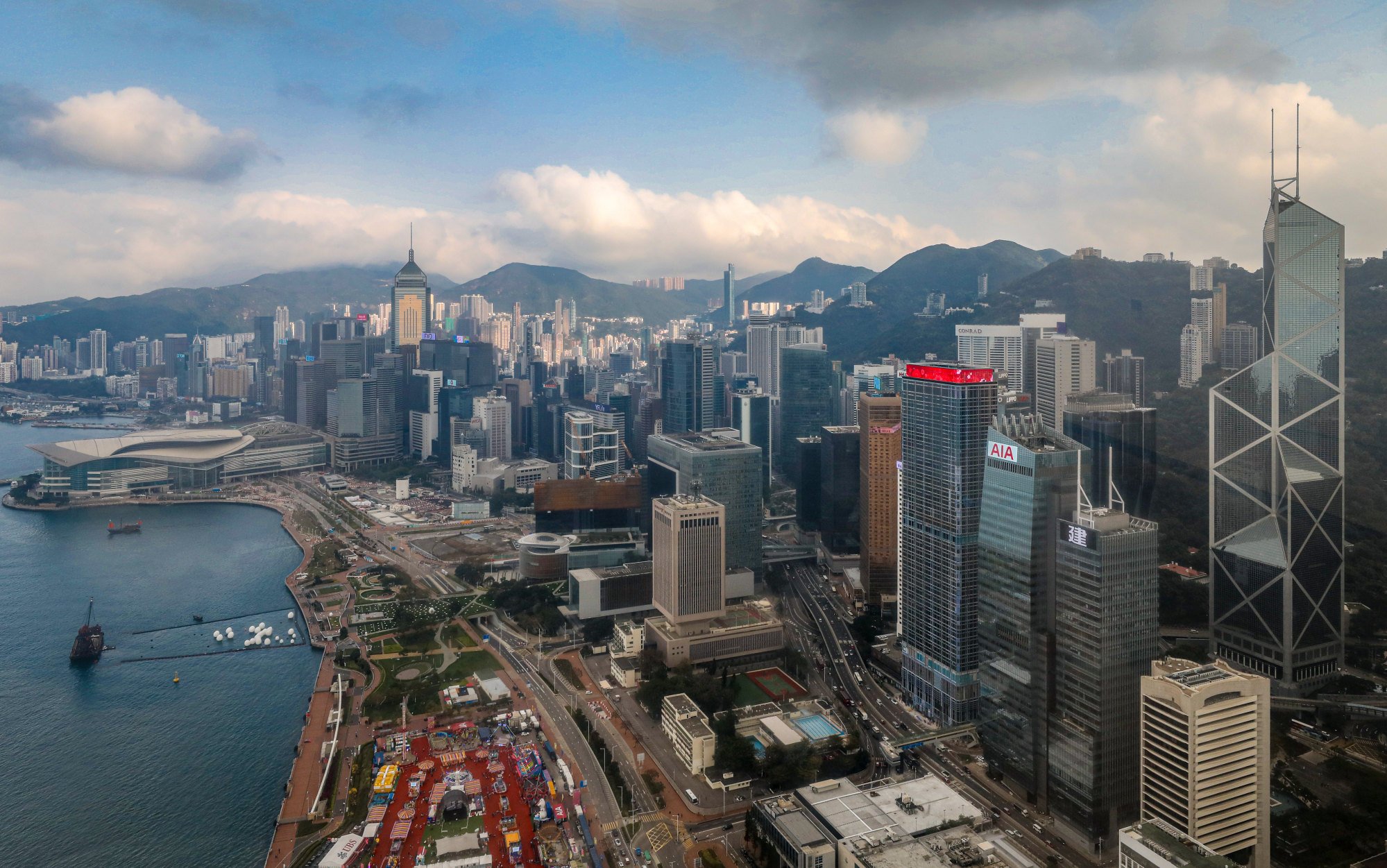
Hong Kong calling
Hong Kong is fighting back. In February, it announced plans to enhance several measures targeted at foreign funds and family offices.
“We will further enhance the preferential tax regimes for related funds, single family offices and carried interest, including reviewing the scope of the tax concessions regime,” said Financial Secretary Paul Chan Mo-po, during a budget announcement earlier this year.
The city is slated to ramp up the types of tax transactions that qualify for tax concessions and will enhance the flexibility in handling incidental transactions, with the aim of wooing more funds and family offices to establish a presence in Hong Kong.
This comes after Hong Kong announced a range of incentives for family offices, such as a tax break and a new regime that would make it easy for overseas companies to redomicile in the city.
While the 2019 social unrest and consequent political changes in Hong Kong, as well as strict quarantine measures, had resulted in many fleeing the city, it has done a creditable job trying to lure talent and make itself attractive to foreign capital.
Over the last year, Hong Kong unveiled a slew of different immigration and talent schemes such as its Top Talent Pass Scheme and a five-year multi-entry travel permit to enter the mainland, even setting up an office dedicated to wooing businesses, also known as the Office for Attracting Strategic Enterprises.
But experts say that the decision to move to Singapore or Hong Kong is not a zero-sum game for companies and depends largely on expansion plans.
“There are many reasons why some businesses choose to come here, most of which are related to the process of diversification and part of its corporate strategy,” said Loh from NUS. “The onus is on businesses to make the decision, but this is led purely by a commercial basis.”
As long as US-China tensions continue to exist, Singapore’s neutrality will also make it an attractive home for these companies – even those beyond the Chinese – looking to skirt the crossfires.
“Singapore’s neutrality and stability offer a favourable environment for international operations. As Chinese companies move through different growth stages, they find Singapore an attractive base, similar to how Japanese and Korean businesses have also moved their regional headquarters to Singapore,” said Forvis Mazars’ Zhang Liang.
However, as property prices start to cool and the days of political instability and tough quarantine rules are over for Hong Kong, it could very much be the case for businesses to use both Hong Kong and Singapore as bases, according to Song from CGS.
“It’s even more important now to have a base in Singapore, unless you believe the trade war is going to disappear overnight. Depending on a firm’s business strategy, it’s still going to be a plan A or B,” he said.
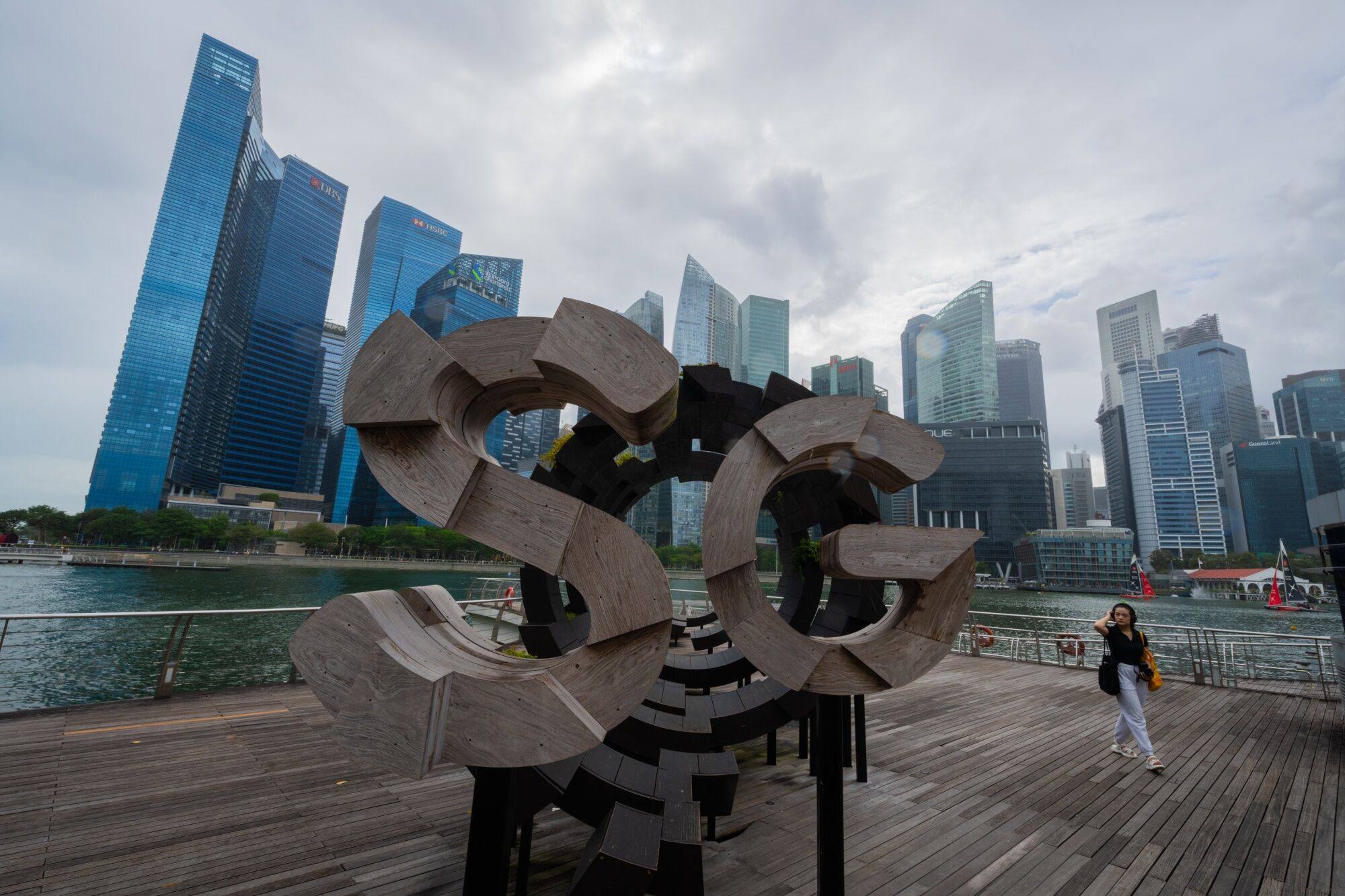
‘Singapore-washing’ to continue
There is a political dimension to Chinese companies settling in Singapore, said political scientist Bilveer Singh, adding that it could become a flashpoint for anti-foreigner sentiments if these wealthy foreigners are viewed as competition over scarce resources.
However most Singaporeans had accepted that these were the necessary trade-offs of an open economy and society, he said, pointing out that many still believed the Singapore model was working well.
For now, beyond tax contributions and job creation, the inflow of Chinese tech firms also enhances the tech ecosystem in Singapore, in turn attracting more foreign investment.
Singapore has earned the title alongside some of the world’s largest start-up ecosystems like those in Silicon Valley and New York in the global top 10 ranking from innovation policy and research firm Startup Genome last year.
It ranked eighth, leaping 10 places from a year before and overtaking regional peers Shanghai, Seoul and Tokyo, landing just behind Beijing.
Currently, it is home to about 4,000 tech start-ups, 18 of them unicorns, and more than 400 venture capital companies.
Meanwhile, Singapore received about 65 per cent of Southeast Asia’s total fintech funding from 2015 to 2019, according to a 2021 survey conducted by the Singapore FinTech Association and management consultancy Oliver Wyman.
But the benefits flow both ways, with Chinese companies also bringing opportunities for growth in these areas.
For example, Play For Dream’s Huang Feng said the firm planned to recruit Singaporeans and collaborate with higher education institutions in an effort to show its “commitment to global market expansion and technological innovation”, though he stopped short of revealing his projected staff strength for the Singapore branch.
As more Chinese companies like Huang Feng’s have plans on international expansion, Singapore will continue to play a key role in their plans especially as US-China tensions show no indication of abating, say experts.
“I believe this trend [of Chinese firms moving operations to Singapore] will continue, fuelled by Singapore’s institutional strength, the inevitable escalation of geopolitical tensions between China and the US, and the growing necessity for many Chinese private firms to expand internationally,” said Wang, from the University of Hong Kong.
And even as Hong Kong rolls out new initiatives to court multinationals, Singapore’s status as an independent state may be seen as “more palatable to global markets”, according to Loh.
“Singapore has the edge because it is independent from China, and Hong Kong ultimately is a special administrative region of China. So doing dealings from a national entity may be more palatable to global markets like the US or EU, so coming to Singapore is not a temporary or one-shot thing, it is definitely part of a long-term plan.”



